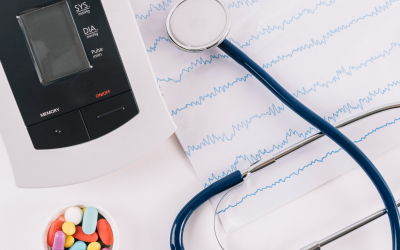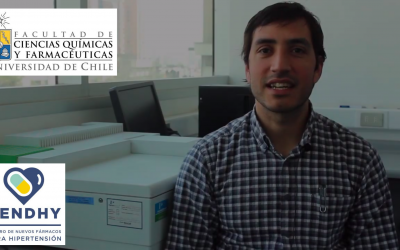When Sars-Cov-2 (the virus that causes COVID-19) reaches a human cell, it doesn’t knock on the door and asks if it can pass. He already has the key, a protein that fits into ACE2 – an enzyme attached to the external surface of cells in organs as fundamental as the lungs and the heart – and which acts as a lock, which opens access to the cell to start the replication process of their own offspring (new viral particles from their RNA).
That is the process that described a group of Chinese scientists in early March , a finding that allowed the search for antibodies to stop the infection to begin. In the meantime, another study warned that those patients suffering from hypertension, heart disease and diabetes mellitus correspond to a group that could be more vulnerable to infection, due to the drugs they consume.
In fact, it has been observed that hypertension (HT) is the main comorbidity, that is, that in 17% of the cases (from a universe that exceeds 46 thousand patients) who were infected with COVID-19, they also suffered from HTA. This allows considering it as a risk factor compared to patients who do not suffer from the disease (Yang et al., 2020).
In the article written by Fang, Karakiulakis and Roth, they explain that coronaviruses that affect humans (severe acute respiratory syndrome coronavirus [SARS-CoV] and [SARS-CoV-2]) bind to cells through of Angiotensin-converting Enzyme 2 (ECA2) , which is present in the epithelial cells that line the lung, intestine, kidney and blood vessels.
The levels of this enzyme are substantially increased in patients with type 1 and 2 diabetes , so they are treated with ACE-inhibiting drugs, which have a vasodilatory (or hypotensive, effect because they lower the pressure) . The other alternative is the use of drugs that block its reception (the latter are angiotensin II type-I receptor blockers, or BRAs). Hypertension is also treated with these drugs.
The problem is that these data suggest that the use of these ACE inhibitor drugs (from the Enalapril family) and angiotensin II receptor blockers (such as Losartan) are capable of increasing the presence of these ACE2 receptors. in the lung and, therefore, carry an increased risk and severity of infection
In this way, if enzyme inhibitors are used, the system does not census angiotensin and will tend to overexpress receptors, which facilitate infection, since there are more “doors” through which the virus can enter . >
The same effect has been observed with the consumption of thiazolidinediones and ibuprofen. Therefore, the team of scientists hypothesize that diabetes and treatment of hypertension with ACE2-stimulating drugs increase the risks of developing severe or fatal cases of COVID-19.

Another aspect that has to be investigated is the genetic predisposition for a higher risk factor for SARS-CoV-2 infection, which could occur due to ACE2 polymorphisms that have been related to diabetes mellitus, strokes and hypertension, specifically in populations. Asian. To summarize this information, a person’s sensitivity to COVID-19 may result from a combination of therapy and as well as ACE2 polymorphisms (gene variables).
Measures to take
Given these new evidences, various scientific societies agree that “it is recommended not to stop treatment with these drugs in patients who are already under its administration; in patients with high severity, any change must be made on a case-by-case basis ”- Spanish Hypertension Society (March 16, 2020).
Therefore, given the evidence and advice of different scientific societies, it is recommended to continue with pharmacological treatment against hypertension, unless the treating physician indicates otherwise, after a complete clinical evaluation. In addition, it is recommended to follow the instructions and measures provided by the Ministry of Health, especially for patients belonging to risk groups.
In the same way, it is important to consider in relation to the use of ibuprofen with COVID-19, which is not absolutely proven , it has been seen at the clinical level that the administration of ibuprofen aggravates the infectious picture in patients who have taken acetaminophen (acetaminophen). This is attributed to the fact that ibuprofen increases the expression of ACE2 receptors, facilitating COVID-19 infection (Fang et al., 2020).
In the context of the COVID-19 pandemic, in people with high blood pressure who are being treated with angiotensin converting enzyme (ACE) inhibitors or angiotensin II receptor blockers (ARA II), the Ministry of Health of Chile SUGGESTS to keep the anti-hypertensive treatment unchanged by over replacing it with other drugs.
Translate. Carla Montecinos.
Collaboration. CENDHY (New Drug Center for Hypertension).
Illustration. Barbara Donoso.
Edition. Paz Santander.
Cover Image: Tag Hartman-Simkins for Futurism NEOSCOPE.
499/5000 This article was written based on the translation of the article entitled: Are patients with hypertension and diabetes mellitus at increased risk for COVID-19 infection ?, written by Lei Fang, George Karakiulakis and Michael Roth, for the magazine “The Lancet : Respiratory Medicine ”.
Click here to read the original article
Posted in Chilecientífico: https://chilecientifico.com/hipertension-y-coronavirus-cuidados-con-el-tratamiento/





0 Comments